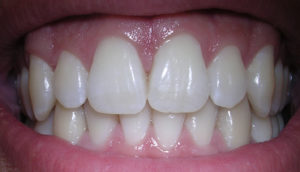 Two articles about the link between Alzheimer's disease (AD) and microbes this past week: a study linking periodontal disease and Alzheimer's, and the other a journal editorial (written by an international team of 31 researchers) suggesting that we need to more closely look at the role of microbes in Alzheimer's disease, especially herpes virus, chlamydia and spirochaete bacteria.
Two articles about the link between Alzheimer's disease (AD) and microbes this past week: a study linking periodontal disease and Alzheimer's, and the other a journal editorial (written by an international team of 31 researchers) suggesting that we need to more closely look at the role of microbes in Alzheimer's disease, especially herpes virus, chlamydia and spirochaete bacteria.
This team is suggesting an "infectious cause" for Alzheimer's, an example being the reactivation of herpes simplex virus type 1 (HSV1) in the person. The researchers state that "regarding HSV1, about 100 publications by many groups indicate directly or indirectly that this virus is a major factor in the disease". The team also mentions the possibility of fungi infection in some cases (see my November 6, 2015 post about a study finding fungal involvement). Both articles mention that treatment of the diseases with some form of antimicrobials or antivirals could possibly treat Alzheimer's disease, and that trails now need to be done.
From Science Daily: Link between gum disease and cognitive decline in Alzheimer’s
A new study has found a link between gum disease and greater rates of cognitive decline in people with early stages of Alzheimer's Disease. Periodontitis or gum disease is common in older people and may become more common in Alzheimer's disease because of a reduced ability to take care of oral hygiene as the disease progresses. Higher levels of antibodies to periodontal bacteria are associated with an increase in levels of inflammatory molecules elsewhere in the body, which in turn has been linked to greater rates of cognitive decline in Alzheimer's disease in previous studies.
The presence of gum disease at baseline was associated with a six-fold increase in the rate of cognitive decline in participants over the six-month follow-up period of the study. Periodontitis at baseline was also associated with a relative increase in the pro-inflammatory state over the six-month follow-up period. The authors conclude that gum disease is associated with an increase in cognitive decline in Alzheimer's Disease, possibly via mechanisms linked to the body's inflammatory response.....However, growing evidence from a number of studies links the body's inflammatory response to increased rates of cognitive decline, suggesting that it would be worth exploring whether the treatment of gum disease might also benefit the treatment of dementia and Alzheimer's Disease.
From Journal of Alzheimer's Disease: Microbes and Alzheimer’s Disease
We are researchers and clinicians working on Alzheimer’s disease (AD) or related topics, and we write to express our concern that one particular aspect of the disease has been neglected, even though treatment based on it might slow or arrest AD progression. We refer to the many studies, mainly on humans, implicating specific microbes in the elderly brain, notably herpes simplex virus type 1 (HSV1), Chlamydia pneumoniae, and several types of spirochaete, in the etiology of AD [1–4]. Fungal infection of AD brain [5, 6] has also been described, as well as abnormal microbiota in AD patient blood [7]. The first observations of HSV1 in AD brain were reported almost three decades ago [8]. The ever-increasing number of these studies (now about 100 on HSV1 alone) warrants re-evaluation of the infection and AD concept.
AD is associated with neuronal loss and progressive synaptic dysfunction, accompanied by the deposition of amyloid-β (Aβ) peptide, a cleavage product of the amyloid-β protein precursor (AβPP), and abnormal forms of tau protein, markers that have been used as diagnostic criteria for the disease [9, 10]. These constitute the hallmarks of AD, but whether they are causes of AD or consequences is unknown. We suggest that these are indicators of an infectious etiology. In the case of AD, it is often not realized that microbes can cause chronic as well as acute diseases; that some microbes can remain latent in the body with the potential for reactivation, the effects of which might occur years after initial infection; and that people can be infected but not necessarily affected, such that ‘controls’, even if infected, are asymptomatic [2].
Regarding HSV1, about 100 publications by many groups indicate directly or indirectly that this virus is a major factor in the disease....The only opposing reports, two not detecting HSV1 DNA in elderly brains and another not finding an HSV1–APOE association, were published over a decade ago [76–78]. However, despite all the supportive evidence, the topic is often dismissed as ‘controversial’. One recalls the widespread opposition initially to data showing that viruses cause some types of cancer, and that a bacterium causes stomach ulcers.
In summary, we propose that infectious agents, including HSV1, Chlamydia pneumonia, and spirochetes, reach the CNS and remain there in latent form. These agents can undergo reactivation in the brain during aging, as the immune system declines, and during different types of stress (which similarly reactivate HSV1 in the periphery). The consequent neuronal damage— caused by direct viral action and by virus-induced inflammation— occurs recurrently, leading to (or acting as a cofactor for) progressive synaptic dysfunction, neuronal loss, and ultimately AD.
AD causes great emotional and physical harm to sufferers and their carers, as well as having enormously damaging economic consequences. Given the failure of the 413 trials of other types of therapy for AD carried out in the period 2002–2012 [79], antiviral/antimicrobial treatment of AD patients, notably those who are APOE ɛ 4 carriers, could rectify the ‘no drug works’ impasse. We propose that further research on the role of infectious agents in AD causation, including prospective trials of antimicrobial therapy, is now justified.
 Another study that found benefits to dog ownership. The study authors concluded that: "Our study provides evidence that dog owners are at a lower risk for ischemic stroke, hemorrhagic stroke and heart failure." This could be to daily exercise, or that dog ownership results in less stress or better psychosocial health, or even some other reason (perhaps dog owners are healthier to start with). Note: myocardial infarction (MI) is commonly known as a heart attack. From Medscape:
Another study that found benefits to dog ownership. The study authors concluded that: "Our study provides evidence that dog owners are at a lower risk for ischemic stroke, hemorrhagic stroke and heart failure." This could be to daily exercise, or that dog ownership results in less stress or better psychosocial health, or even some other reason (perhaps dog owners are healthier to start with). Note: myocardial infarction (MI) is commonly known as a heart attack. From Medscape:
 Toxoplasma gondii tissue cyst in a mouse brain
Toxoplasma gondii tissue cyst in a mouse brain  Another study showing that higher physical activity (from a variety of activities) is "related to larger gray matter volume in the elderly, regardless of cognitive status", specifically in gray matter areas of the brain responsible for memory, learning, and cognition. In other words, higher levels of physical activity reduce brain atrophy that occurs with aging and improves cognitive function in elderly individuals. There is also discussion of higher activity levels improving cerebral (brain) blood flow. Bottom line: get off your butt and move more for better brain health. From Medical Xpress:
Another study showing that higher physical activity (from a variety of activities) is "related to larger gray matter volume in the elderly, regardless of cognitive status", specifically in gray matter areas of the brain responsible for memory, learning, and cognition. In other words, higher levels of physical activity reduce brain atrophy that occurs with aging and improves cognitive function in elderly individuals. There is also discussion of higher activity levels improving cerebral (brain) blood flow. Bottom line: get off your butt and move more for better brain health. From Medical Xpress: A new study has confirmed an association between proton pump inhibitors (PPIs) — drugs that treat heartburn, peptic ulcers, and other acid-related disorders of the upper gastrointestinal tract — and increased risk for dementia in older patients. An earlier study by the same researchers found the same link between PPI use and dementia risk. The drugs work by lowering the amount of acid produced by the stomach. PPIs are among the most frequently prescribed drugs, and include omeprazole (Losec), esomeprazole (Nexium), lansoprazole (Prevacid), and the over-the-counter medication Olex.
A new study has confirmed an association between proton pump inhibitors (PPIs) — drugs that treat heartburn, peptic ulcers, and other acid-related disorders of the upper gastrointestinal tract — and increased risk for dementia in older patients. An earlier study by the same researchers found the same link between PPI use and dementia risk. The drugs work by lowering the amount of acid produced by the stomach. PPIs are among the most frequently prescribed drugs, and include omeprazole (Losec), esomeprazole (Nexium), lansoprazole (Prevacid), and the over-the-counter medication Olex. The finding that the oral bacteria Streptococcus mutans, which is found in 10% of the population, is linked with hemorrhagic strokes is big. S. mutans is found in tooth decay or cavities (dental caries). The researchers found a link with cnm-positive S. mutans with both intracerebral hemorrhage (ICH) and also with cerebral microbleeds.
The finding that the oral bacteria Streptococcus mutans, which is found in 10% of the population, is linked with hemorrhagic strokes is big. S. mutans is found in tooth decay or cavities (dental caries). The researchers found a link with cnm-positive S. mutans with both intracerebral hemorrhage (ICH) and also with cerebral microbleeds. More evidence that traditional toys and books are superior to electronic toys in both verbal parent-child interactions and non-verbal interactions for young children. Parent-child verbal interactions are so important because they teach young children language, lay the groundwork for literacy skills, teach role-playing, teach emotional and social skills such as turn-taking and accepting others' leads. In other words, put down the electronic gadgets and go spend time talking and interacting with your young child with old style traditional toys and books. From Science Daily:
More evidence that traditional toys and books are superior to electronic toys in both verbal parent-child interactions and non-verbal interactions for young children. Parent-child verbal interactions are so important because they teach young children language, lay the groundwork for literacy skills, teach role-playing, teach emotional and social skills such as turn-taking and accepting others' leads. In other words, put down the electronic gadgets and go spend time talking and interacting with your young child with old style traditional toys and books. From Science Daily: A large study found that using antidepressants during the second or third trimester of pregnancy increases the risk that the child will have autism by 87%, especially if the mother takes selective serotonin reuptake inhibitors (SSRIs). A drawback was that the study looked at associations rather than actual cause (which would have meant randomly assigning women to either treatment or no treatment - which is unethical). From Medical Xpress:
A large study found that using antidepressants during the second or third trimester of pregnancy increases the risk that the child will have autism by 87%, especially if the mother takes selective serotonin reuptake inhibitors (SSRIs). A drawback was that the study looked at associations rather than actual cause (which would have meant randomly assigning women to either treatment or no treatment - which is unethical). From Medical Xpress: